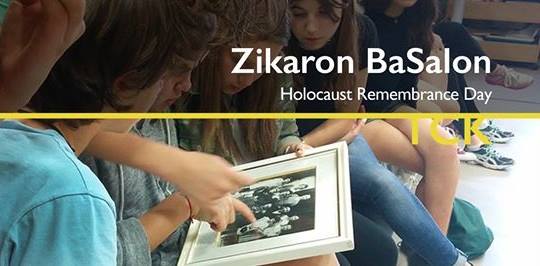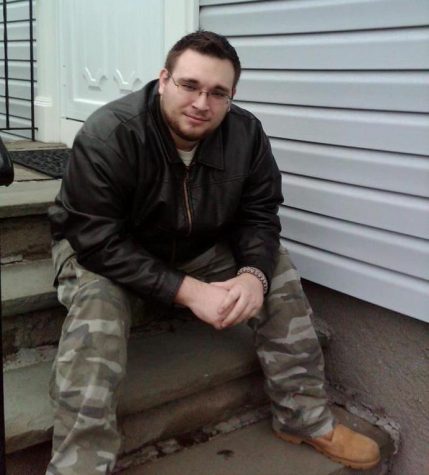Zikaron BaSalon: Reconnecting To The Past Before It Is Lost

Mercy College recently hosted the second of its Center for Global Engagement Speaker Series with reservists from the Israeli Defense Forces or IDF.
The event allows students, faculty, and residents the rare opportunity to converse with and discuss the issues, controversies, difficulties, and solutions in the Middle East.
However, the issues discussed weren’t limited to the present, but also the past and one of mankind’s greatest depravities, the Holocaust.
From 1941 through 1945, six million European Jews were murdered at the hands of the Nazis in concentration and labor camps, and death squads. Among them were also Roma, Slavic, disabled, homosexual and other various peoples of color who suffered under the wrath of the Third Reich.
As time progresses, our connections to the past are limited to those who experienced it, and as with all-natural life, those numbers will begin to dwindle. Our understanding of events long before any living human experience is limited to historical text, pictures (if during the age of photography), and artifacts recovered from the time.
According to a 2018 article in The Jerusalem Post, a report found that the number Holocaust survivors in Israel by 2035 would dwindle to only 26,200, the report had also stated that at the end of 2015, that number was 202,600 survivors.
Their experiences are not just stories, they are emotion-driven journeys through the past, and once they are no longer present to tell them, to make us feel the passion; that is when they are relegated to history and storytelling.
But this dilemma hasn’t gone completely unnoticed says Doron, one of the speakers during the event.
“Six years ago, a group of young Israelis asked themselves what would Holocaust remembrance day look like forty years from now, when there are no survivors left.”
That group of young friends organized an event that took place in their living room, the first dated back to 2010.
The meeting involved the friends experiencing a Holocaust survivor’s first-hand account of the horrific events that plagued Europe during the Second World War at the hands of the Nazis.
The experience had such an immediate and powerful effect on the group that they organized Zikaron BaSalon or “memories in the living room” in Hebrew.
The event, which takes place on Israeli Holocaust Remembrance Day, was now available for anybody who wished to participate themselves.
The event’s purpose is not only remembrance but authenticity. The ability to share the experience with friends, family members, and the survivors in an intimate setting such as the living room offered people the chance to make that connection to the past that the group had thought was being lost.
For Doron, he became aware of the event online. “I saw it on Facebook, and I joined. I wanted to be a host.”
Zikaron BaSalon is a three-part event, the first part being Testimony. The testimony begins with a survivor giving a first-hand account of what he or she witnessed and experienced as the hosts, their family, and friends offer upon them their undivided attention.
After he became aware of the event, Doron eventually got the chance to host his own event. “ I did it this year. I hosted. If you know a survivor, they will attach you to the survivor if you don’t have a survivor you can show a recording or a video.”
Other possibilities include a second-generation survivor or even an expert who could provide the necessary information.
Once the story stage is set, emotion and deliberation of the political, social, and religious tensions become a main component of the event. “After the story, you have musical relief and a discussion about what we can do about genocide, and whether they should continue to travel to Poland,” says Doran in regard to a rash of anti-semitic fervor in the nation.
The second stage of the event is Expression. This stage involves creatively expressing emotions, thoughts, or feelings through song, storytelling, or prayer. The idea of stage two is to collectively share everyone’s emotion, feelings, and to create unity among the participants.
The final stage of Zikaron BaSalon is Discussion. It is an open platform for everyone involved to voice their concerns, experiences, thoughts, and their own personal relationship to not only the Holocaust but the ethnic tension that still permeates the region.
The discussion stage is not only a remembrance of the past but a gaze into the future. The event itself was born out of a feeling that we, as a people, have become emotionally removed from the horrors of the past. And that before it was too late, we must rectify that by experiencing and sharing the memories, stories, and emotion of those who were there.
But, eventually, there will come a time when there are no survivors left, and that is where the Discussion stage becomes crucial to the event.
The stage becomes a symposium for the guests to plot the steps necessary that would prevent future atrocities from being realized, by learning from those who experienced it in the past and use it to educate those who have never witnessed such hatred, to warn them that not only does it exist, but it can consume.
To this day, Doron is still amazed at how fast Zikaron BaSalon has grown since inception in 2010. “It is a beautiful initiative; today, over five years later, there are over 750,000 who have participated.”
At its core, Zikaron Basalon is not only a chance to commemorate the heroism and reminisce about the pain and horror that those who survived the Holocaust endured; it is a an experiment that shows that even though humanity is capable of such soulless and depraved hatred, it is also capable of coming together, rising past the differences that often divide us, under the simple yet crucial banner of unity and love for one another.
For Doron, the fact that it was just a group of three friends who acted because they realized that the past was quickly being forgotten, he has hope for the future, “That’s how you start things from the bottom, with the people. When people start to take the imitative towards political situations, it can become viral in its most positive sense.”

Michael Dunnings, otherwise known by the Hungarian equivalent "Miska", is a native of Dobbs Ferry and a senior studying Journalism at Mercy College. Michael...







